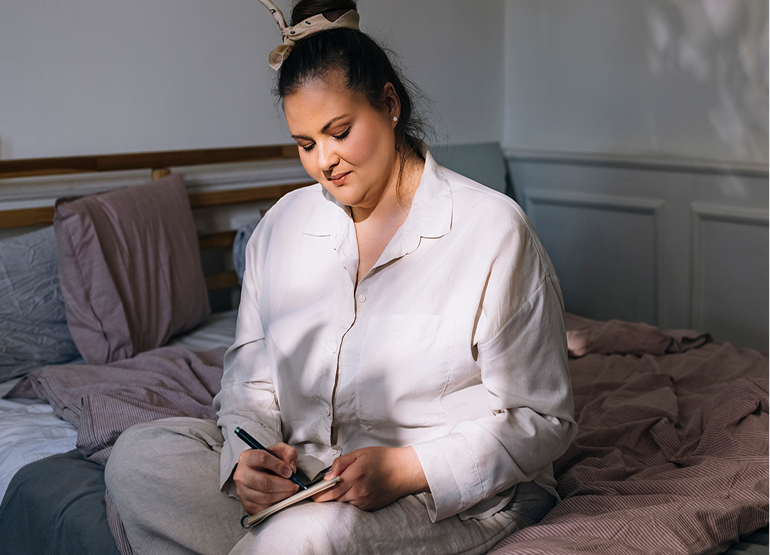

A sleep diary is a simple tool for identifying patterns and factors that may be affecting your sleep. By tracking your sleep habits, you can provide your doctor with helpful information about how much and how well you sleep.
Maintain your sleep diary by taking a few minutes each day to answer the questions below. Remember to fill in as much information as you can and try to do this consistently every day.

Now that you've been tracking your sleep, you might notice certain telltale patterns or problems. This is where your sleep diary can become invaluable for your doctor. Keeping an eye on these patterns is crucial because it can help you recognize when it's time to seek professional help. Here are some signs that it may be time to book an appointment with your doctor:





Take this short, clinically validated self-assessment to see where your sleep challenges may fall—from mild to more serious—and if it might be time to talk with your doctor.